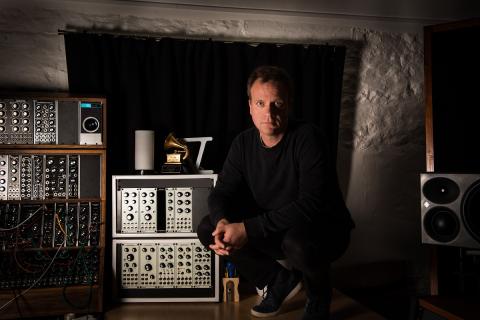
A GRAMMY Award-winning producer and mixer, he engineered on Amy Winehouse’s number one “Back to Black” album and singles for Adele and Morrissey, among others. He also mixed Sting’s “Live at Durham Cathedral” and worked with The Police on the pre-production for their world tour. Based in the UK, he is also the founder of The Mix Consultancy, which is talked about during this interview.
"I'm very susceptible to, if I get offered something interesting that I've never done before, to go, 'Ooh, yeah, I'll try that out.' Which means I'm permanently in this massive learning curve of the new thing that I just said Oh yeah, I'll try that out."
"It's all kind of music and audio related, so everything does feed into everything else and you end up learning skills that are applicable elsewhere."
"It's a case of me liking a new challenge, I think that's what it is, which I kind of love and I hate, really, because I love doing something new and then I realize I've taken on a really big endeavor. But... it's fun."
"If you're working with someone like Sting or someone that's just been doing it a very long time... you've just gotta make sure that you're providing the environment that they're used to, to create and to be as good as they can be, because they've got more pressure as an A-lister than somebody who's doing a new project."
"My main, sort of, goal is I want people to be as creative as possible when they're working with me."
"We're all supposed to be being as creative as possible and being prepared to be wrong as often as possible so that eventually we can be right and find the things that work."
"I think there are fewer professional producers in the world than there are artists, and so we don't want to be limited to just the sounds that these producers make. We want to be as varied as there are artists. So, I try as much as possible to not have a (signature) sound."
"I'm not someone who at all tries to make the record sound like I made it. I would personally consider that a bit of a failing 'cause that would mean it sounded more like me than the artist and that's really the opposite of what I want to do."
"Try and reach out to other people and do remote collaborations that at least allows you to bounce ideas off people, 'cause generally that's why people don't want to record on their own."
"The thing is to keep it simple. That's really what I think people lose sight of, because it's very easy to get pulled into the idea that the next plugin that comes along is going to make the difference to your sound."
"A few simple bits of gear that you know really, really well will make a big difference to the quality of what you can make in your home studio and just not getting sucked into the buying another plugin because it's on sale or it's shiny because that doesn't get you anywhere apart from poorer."
"You can watch YouTube videos all day that teach you how to do a certain thing with the bass or fix a certain problem in your mix, but if you don't know that's the problem that you've got, then you don't know to fix it."
"To be honest, vocal production has got so much to do with psychology."
NOTE: The band that Dom refers to at the end that Amber Wilson is the singer of is called OK Button.
"In and Out" (V Pages)
"Only One" (V Pages)
